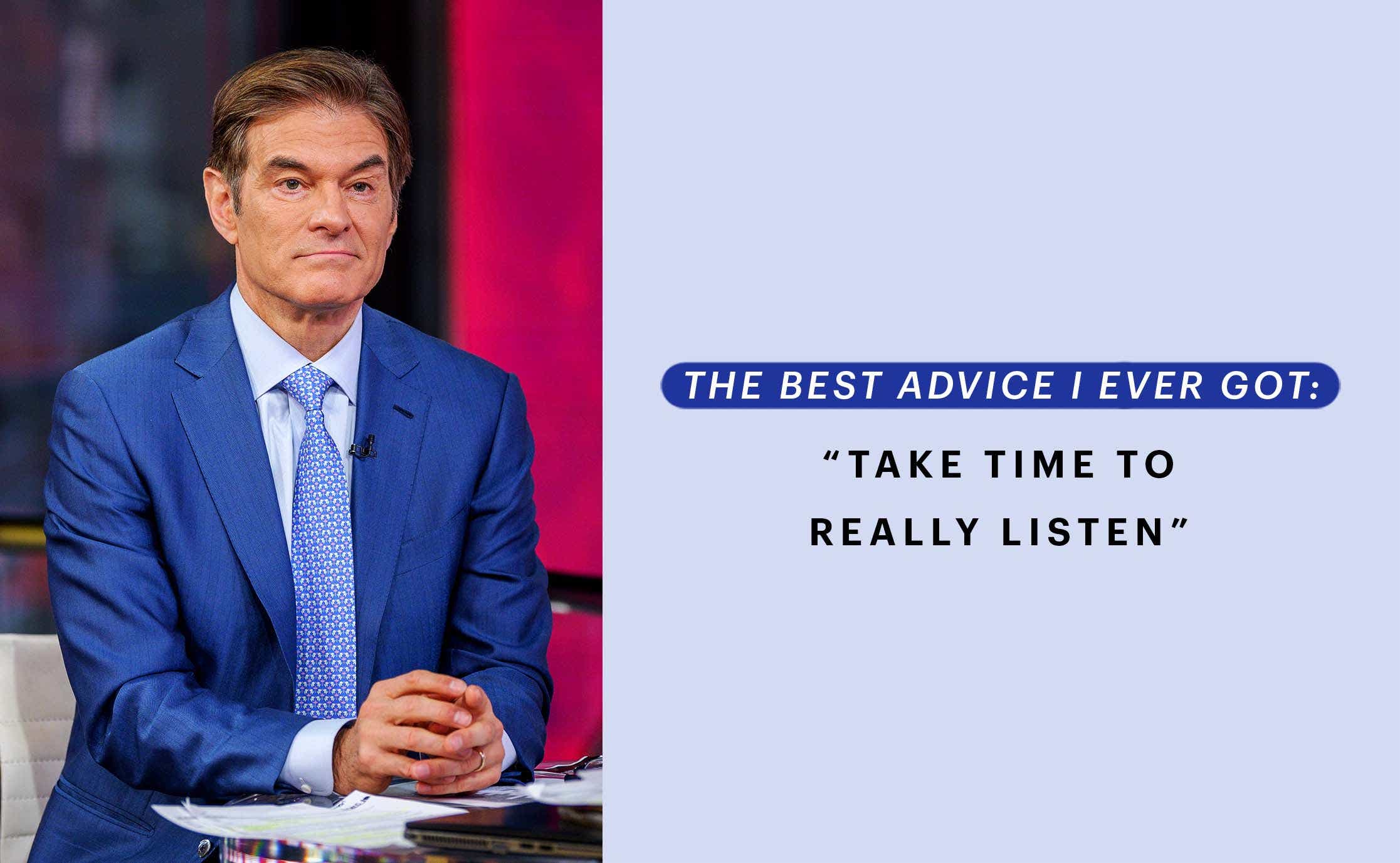At a time when we could all use a little inspiration, we're looking back at Katie's 2012 book, The Best Advice I Ever Got. In it, she examines her own experiences from the front lines of the worlds of politics, entertainment, sports, philanthropy, the arts, and business — and collects the ingenious, hard-won insights of countless leaders and visionaries. They tell us how to take risks, follow our passions, cope with criticism, and commit to something greater than ourselves. You'll find thoughts from everyone from financial guru Suze Orman, to Steven Spielberg, to Salman Rushdie, to Maya Angelou.
Couric also reflects on the sage advice that has guided her, from her early days as a desk assistant at ABC to her groundbreaking role as the CBS Evening News' first female anchor.
The beloved Doctor Oz, a cardiothoracic surgeon and TV superstar, reflects on an experience with a Jehovah's Witness patient that made him absorb a powerful lesson that changed his approach to practicing medicine.
Dr. Oz:
"Take Time to Really Listen"
In my final year of surgical training, I was called to see a petite fifty-three-year-old Jehovah’s Witness with an aggressive bleeding stomach ulcer. In keeping with their religious beliefs, Jehovah’s Witnesses refuse to receive blood transfusions. The problem facing my patient was that her hematocrit — the percentage of red blood in her body — was at only seventeen percent. The normal value is forty-five percent, and in this precarious setting it was standard procedure to transfuse blood in order to keep the figure above thirty percent. She needed surgery, and I needed the safety net of blood in her veins to afford me time to complete the operation. I approached my fading patient and her family.
To my dismay, they were firmly opposed to a blood transfusion. My only hope was emergency surgery — a desperate attempt to stop the bleeding in time. We were in the operating theater within minutes, but I already knew that we were too late. By the time the bleeding ulcer was sewn closed, the hematocrit was down to four percent. By way of comparison, healthy baboons die at blood counts of seven percent, and this frail woman had just undergone major surgery. She didn’t stand a chance. The surgical team felt distraught and powerless. I was angry that the stubborn, medically illogical beliefs of this family were preventing me from saving a life.
I stormed through the hallway toward the large family that waited outside the Intensive Care Unit. Exasperated, I explained what had occurred in the OR and stressed that the patient’s life would most definitely be lost if we could not transfuse her. Too little blood remained to provide her fifty-three-year-old heart with the oxygen needed to survive. Already the electrical ECG strip showed that the heart was dying. The decision-makers of the family needed to determine whether they were willing to sacrifice the life of their matriarch upon the altar of their religion. I left and gave them five minutes to decide. I returned to an eerily calm waiting room. An older gentleman came forward and briefly explained that their God would protect her and that they would rather see their loved one die than go against the tenets of their religion. I was livid. I felt that, in standing on principle, the family had abandoned their matriarch. They knew nothing of what was happening to her medically, yet they were condemning her to death. I left the ICU banging my stethoscope against my thigh in disgust. I refused to be present when she died from a very preventable ailment: the lack of blood.
The matriarch survived the first evening, and the next, and another, until she was released from the hospital eleven days later with a hematocrit of nine. Though her levels were still low, the ruby color of her cheeks had returned and she was well enough to go home. We doctors are taught early in our training that if we really listen to our patients, deep insights will shine through for us. I realized that I had been angry at my patient’s family because of my perception that they were disbelieving my advice. I was wrong. They absolutely trusted my judgment and predictions, yet firmly believed that their mother was better off in heaven without blood than alive on earth having sacrificed her religious principles. Many times in my career I have cared for thoughtful souls who understood that, even though their decisions went against my medical advice, they were still making the right decisions for their own lives. Even though I still disagree with the choice made by my Jehovah’s Witness patient, the experience taught me to listen more acutely to what my patients — as well as my friends and family — are really trying to say and to stop judging their comments as a referendum on me.
Knowledge offers a wonderful perspective, but the wisdom to correctly guide our life decisions is deeply ingrained in each of us if we take the time to listen.
Excerpt(s) from THE BEST ADVICE I EVER GOT: LESSONS FROM
EXTRAORDINARY LIVES by Katie Couric, copyright © 2011, 2012 by Katherine Couric. Used by permission of Random House, an imprint and division of Penguin Random House LLC. All rights reserved.









